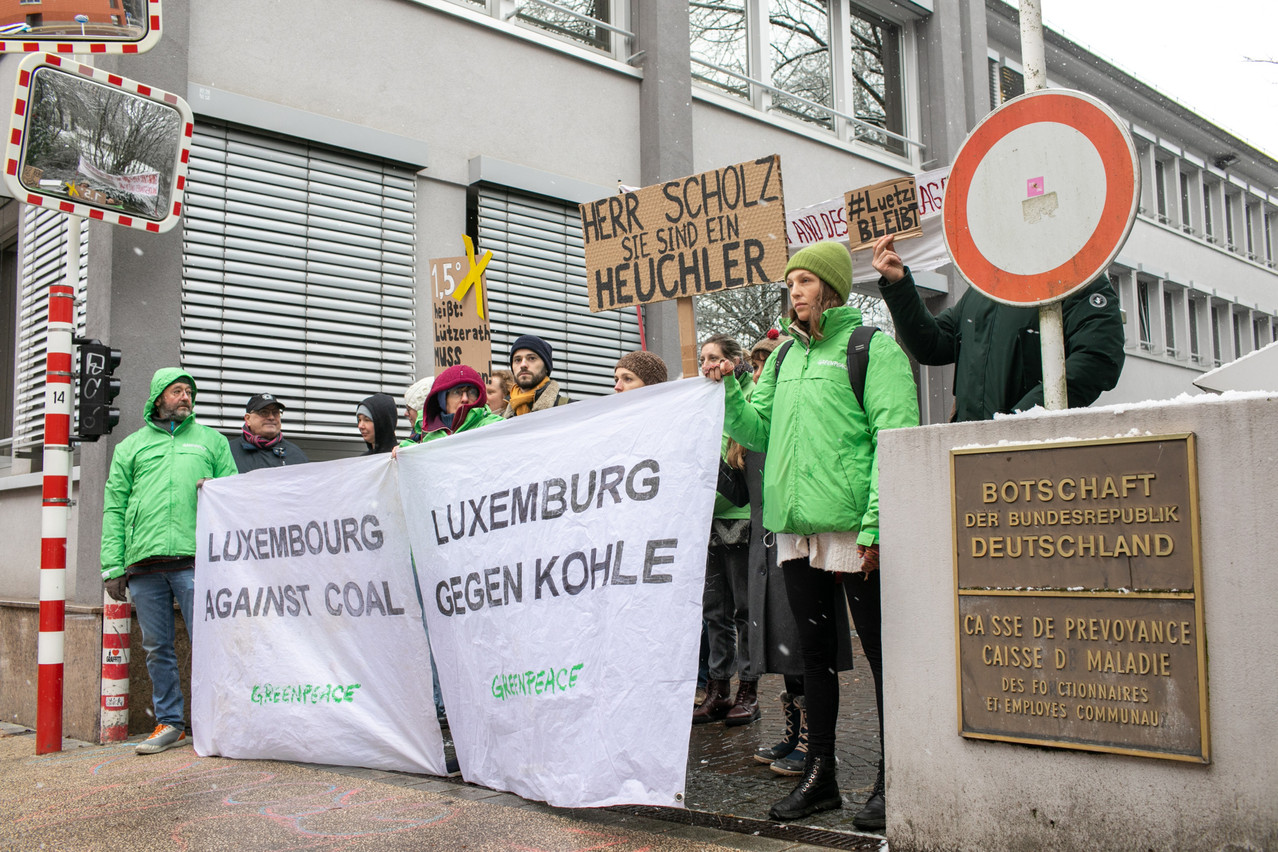Greenpeace on 16 January accused Luxembourg’s main public pension provider, the Fonds de Compensation (FDC), of not having accepted mediation by the OECD’s National Contact Point in the context of its complaint, lodged on 13 March 2024.
The National Contact Point in December published its initial final assessment, in which it considered, among other things, that the FDC Sicav-FIS is considered to be an enterprise to which the OECD guidelines apply and that there is a sufficient link between the activities of the FDC Sicav-FIS and the issues raised by Greenpeace. However, the FDC rejected the National Contact Point’s offer of mediation on the grounds that it objects to the classification of the Sicav-FIS as a multinational enterprise.
In a press release, Greenpeace points out that it is committed to respecting the impact of certain companies on people and the environment, their contribution to global warming, environmental degradation and human rights violations, and their involvement in the production of controversial weapons. “Public companies such as the Luxembourg pension fund should be the pioneers of finance in line with the global legal obligations of states. By adopting strategies that respect the climate and human rights, these companies can lead the transition to a more responsible and greener financial sector,” explains Martina Holbach, campaigner for Greenpeace. “The government must take advantage of the discussions on pension reform to improve the Fonds de Compensation’s sustainability strategy. In this context, we expect the government to invite Greenpeace and other NGOs to an exchange of views.”
OECD contact point asks questions
On 6 December, the OECD’s National Contact Point said that: “The specific case raises questions about FDC Sicav-FIS’s responsibility to conduct human rights and environmental due diligence, to address climate and human rights risks in [its] value chains throughout [its] investment process, and to use [its] influence to encourage invested companies to prevent or mitigate negative impacts identified as part of the due diligence process.” More specifically, the complaint concerns a range of companies and sectors in which FDC Sicav-FIS invests, despite their alleged negative impacts on human rights and the environment. On the basis of the above, the LuxNCP considers that there is “a sufficient link between the activities of FDC Sicav-FIS and the issues raised in this specific case.”
Greenpeace cites the public consultation carried out as part of the debate on the merits of reforming the pension system. According to this document, “sustainability aspects are the second most important issue. The emphasis is on both the long-term financial sustainability and the ecological sustainability of the pension system. This motif links demographic developments to funding issues and intergenerational equity. Many contributions call for alternative financing models, incorporating sustainable investments and an adaptation of contribution structures. It is emphasised that the long-term stability of the system can only be achieved by taking greater account of demographic trends and the needs of future generations.”
1,200 companies to be excluded, according to Greenpeace
As of 11 March, according to the Greenpeace report, “the FDC invests in more than 1,200 companies excluded by other institutional investors because of their negative impact on society and the environment, including their contribution to global warming, their involvement in numerous environmental damages, their responsibility for human rights violations or their involvement in controversial weapons. These companies represent a total investment value of over €4.5bn, or 36% of the fund’s portfolio of equities and corporate bonds and 20.6% of the total portfolio.”
Greenpeace Luxembourg also examined the fund’s investments using the Urgewald organisation’s Global Coal Exit List and Global Oil and Gas Exit List. “The study shows that the FDC invests in leading companies active in the coal, oil and gas sectors, which should be excluded from its investment portfolios. Currently, the FDC does not exclude any companies on climate grounds.”
In its recently published annual report 2024, the FDC responds without replying directly to Greenpeace that “the FDC board of directors does not have the authority to accept, beyond the restrictions imposed by legal provisions and international conventions in force, the exclusion of companies or entire sectors from the authorised investment universe on the basis of choices that are not dictated by financial management criteria recognised by the profession, but rather inspired by specific thematic considerations. Taking a position on issues that are the subject of philosophical, religious, political, climatological or societal controversy does not fall within its remit.”
The FDC’s response
It adds that “if such exclusions were to be envisaged, a modification of the current legal framework applicable to the FDC would have to be considered. However, a more restrictive legal framework could lead to a redefinition of the FDC’s investment strategy and compromise its current management model, which has proved its worth since 2007 with an average annual return of almost 5% and capital gains in excess of €11.5bn by the end of 2023. Compared with the situation prior to 2007, and in terms of cumulative performance, the FDC’s investment strategy has generated an outperformance of around 105% compared with simple short-term investments.”
In a specific section of the same annual report, it publishes a list of 137 excluded companies.
The main mission of Luxembourg’s Fonds de Compensation is to manage and invest the financial reserves of Luxembourg’s social security schemes, in particular the general pension scheme. Its role is to guarantee the financial sustainability of these systems by ensuring that the reserves are invested in such a way as to maximise returns while respecting the principles of prudence and sustainability.
This article was originally published in .
